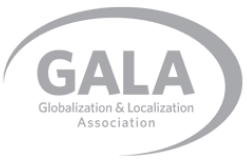Welcome to Netwire Global Linguistic Solutions, where we pride ourselves on bridging the gap between cultures and languages through our expert translation and interpretation services. With the world becoming increasingly interconnected, effective communication has never been more critical, and our team of skilled linguists is here to assist you every step of the way.
Our highly-trained interpreters excel in providing real-time language mediation, enabling seamless communication during conferences, meetings, medical appointments, legal proceedings, live TV broadcasts, and even sign language interpretation. They possess the unique ability to think on their feet, preserving the original meaning while adapting idioms, colloquialisms, and cultural references for the target audience. Rest assured that our interpreters rely solely on their experience, memory, and quick reflexes to deliver impeccable results, free from the use of scripts, dictionaries, or reference materials.
On the other hand, our talented translators are well-versed in converting written content from the source language to the target language with precision and accuracy. They expertly utilize computer-aided tools, such as translation memory and glossaries, to expedite the translation process, ensuring consistency and reducing turnaround time. Whether it’s websites, print materials, video subtitles, software, or multimedia, our translators are equipped to handle a diverse range of written information while adhering to the highest quality standards.
The key distinction between our interpretation and translation services lies in the delivery and medium of each service. While interpretation thrives in live scenarios, translation allows for revisions and edits, making it an ideal choice for projects where perfection and careful consideration are crucial.
When choosing between interpreting and translating, consider the specific needs of your project. For immediate, live communication, our interpreting service excels in fostering seamless interactions. On the other hand, if you require carefully crafted written materials that convey your message accurately, our translation service is the perfect fit.
At Netwire, our commitment to cultural understanding and language expertise sets us apart. Our team of professionals has in-depth knowledge of specific subject matters, ensuring that your content is not only linguistically flawless but also culturally relevant and resonant with your target audience.
No matter the scale or complexity of your project, our global linguistic solutions will help you break through language barriers and reach new audiences worldwide. Take your international business to new heights with our specialized translation and localization services.
Contact us today and embark on a journey of successful global communication with Netwire Global Linguistic Solutions. Together, we’ll open up a world of opportunities for your business. Let us be your partner in achieving a truly global presence!
Translation and interpreting play crucial roles in facilitating communication between different cultures and languages. In a world where effective communication is essential, the assistance of interpreters and translators becomes necessary.
While interpreters and translators share similarities, they possess different skillsets. Interpreters specialize in mediating languages orally, whereas translators work with written material. Translators require strong reading comprehension, transfer, and target language production skills. On the other hand, interpreters need to quickly render content in real time without extensive access to external resources, relying on their working memory.
To understand the difference between translation and interpretation, it is important to consider key aspects. Generally, interpretation deals with spoken language in real time, while translation focuses on written content. Translation is a process that occurs over a period of time and allows for extensive access to external resources, while interpretation takes place on the spot during live scenarios.
Translation involves deciphering the meaning of written content from a source language into the targeted language. One notable difference between translation and interpretation is that translators often employ a wider range of computer-assisted tools. These tools, such as translation memory and termbase software, facilitate the translation process by quickly filling in missing gaps. Translators can refer to parallel texts or other written materials to ensure accuracy. Their main focus is on working with written materials such as print or websites.
Interpretation, on the other hand, involves paraphrasing the content conveyed by a speaker. Interpreters engage in live conversations, translating in real time during meetings, conferences, appointments, live TV broadcasts, and more. Given the immediate nature of interpretation, it requires individuals who can work under pressure and possess excellent communication skills.
There are several differences between translation and interpretation. Translation concentrates on written content, demanding high accuracy and potentially taking more time to produce. Interpretation, on the other hand, deals with the spoken word and prioritizes understanding and communication over perfection.
The key distinction between interpretation and translation lies in the medium of each service. Interpreters translate spoken language orally, while translators focus on translating the written word. Although translators and interpreters require slightly different skill sets, they both possess a deep understanding of culture and language, expertise in specific subject matters, and the ability to communicate clearly.
While these terms are often used interchangeably, understanding the distinctions between these closely related fields is crucial when choosing the appropriate service.
Interpretation is a service delivered in the moment, either simultaneously or consecutively with the original speech. It does not involve the use of scripts, dictionaries, or reference materials. Professional interpreters need to transpose the source language within context, preserving its original meaning while rephrasing idioms, colloquialisms, and culturally-specific references for the target audience. Interpreters rely solely on their experience, memory, and quick reflexes.
Interpreters work on projects involving live translation, such as conferences, meetings, medical appointments, legal proceedings, live TV coverage, and sign language.
Translation, in contrast, often makes use of computer-aided tools. Translators convert the source content into an easily workable file format, typically RTF, and apply translation memory to automatically translate previously translated segments. They fill in any remaining gaps from scratch. Throughout the translation process, translators may refer to glossaries and translation style guide templates to ensure quality. The final written document is proofread by another linguist and converted back into its original format, ensuring the closest possible match.
Translators work on various forms of written information, including websites, print materials, video subtitles, software, and multimedia.
To determine which service is best suited for a project, it is essential to consider the vast differences between interpreting and translating. In summary, here are the five main distinctions to consider:
Medium: Interpreters translate spoken language orally, while translators work with the written word.
Timing: Interpreting occurs in real time, while translation is a process that takes time.
Access to Resources: Translators have extensive access to external resources, whereas interpreters rely on their memory and experience.
Service Delivery: Interpretation is delivered live, while translation allows for revisions and edits.
Focus: Interpretation prioritizes understanding and communication, while translation emphasizes accuracy and precision.
Expand your global horizons with Netwire Global Linguistic Solutions! Discover how our specialized translation and localization services can boost the success of your international business. Contact us now and take your communication beyond language barriers!








